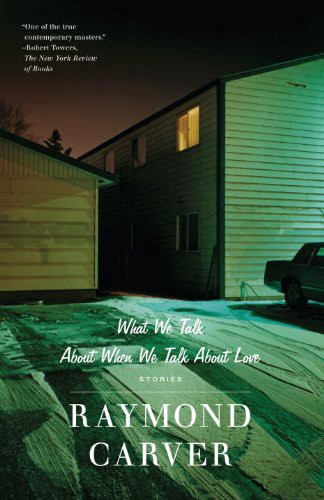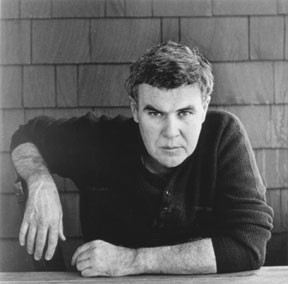Finished 1/30/17 at 9:46pm

When I’m in New York City, I always visit the Strand Bookstore. In fact, I think it might be my favorite place in the entire city — 17 miles of books, of all subjects, only waiting for my curiosity to pull me their way.
On my last trip, I got a little book drunk, purchasing 5 books, one of which was What We Talk About When We Talk About Love by the late Raymond Carver. It was a book I always wanted to read but somehow never got around to.
However, when I finally did, I went all in — starting and finishing the collection of stories in under a week with time to breathe. Carver, who wrote sparsely but pungently on some of the most serious topics imaginable, was one of the few masters of the short story in modern times (I’d argue, standing alongside Salinger and Hemingway). In Love, he showcased some of his best, including “Why Don’t You Dance?”, “Viewfinder”, “I Could See the Smallest Things”, “After The Denim” and “The Third Thing That Killed My Father Off”. I mean, listing them out like this only showcases the profundity of the collection — it’s hard not to list every story in the book as a highlight.

Carver’s prose is swift, original and biting. His stories hit you quickly with their language, but the meaning and density of the story only continues to deepen hours, days, weeks after reading.
Love, of course, is the central theme of all the stories — however, each story takes an approach to the source in a different way. Some are more positive (“After the Denim” and “Why Don’t You Dance?” have stuck with me the longest) while others dive into the dark (“Tell The Women We’re Going” and “So Much Water So Close to Home” are haunting). They often share motifs like alcoholism and low-to-middle class existence.
In the end, Love shows how people only scratch the surface of their true reality — things are rarely what they seem, people rarely say what they truly mean, and most importantly, few really know what it is they actually mean.
Life is complex — very few can capture this complexity and distill it’s truth in a simple way. Those that can are what we consider the “greats”, and I believe that Carver proved with Love that he should sit among them.

